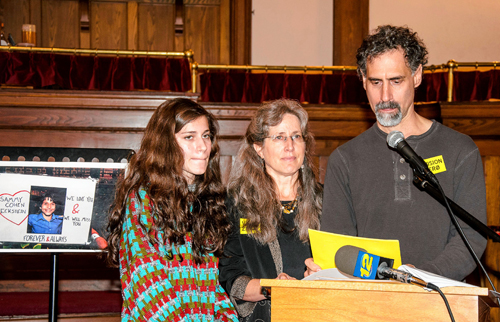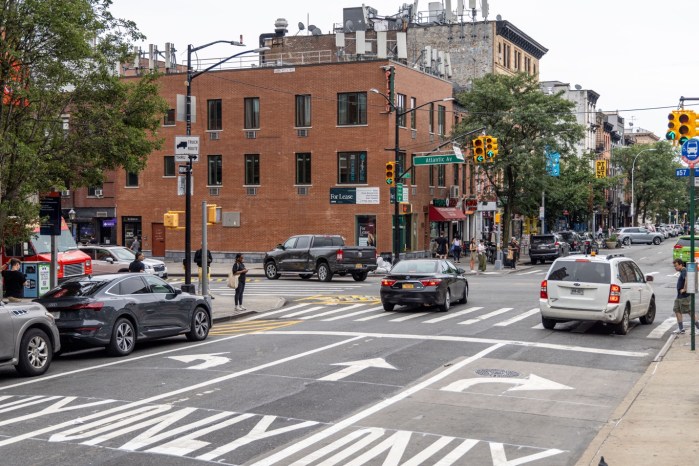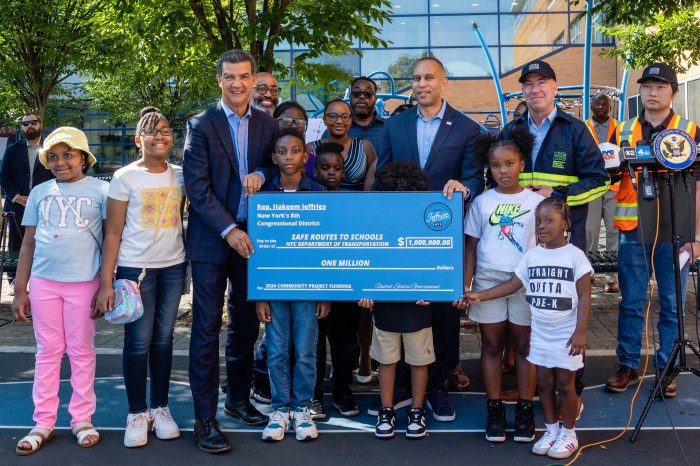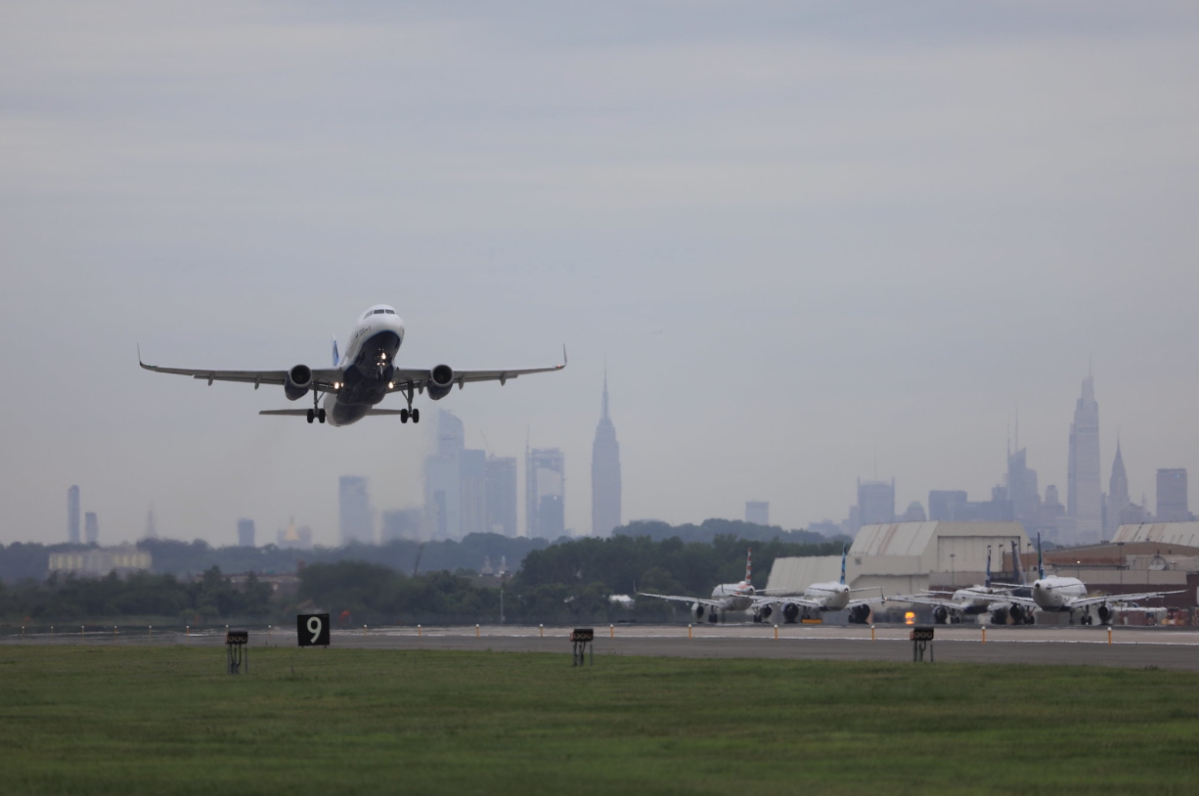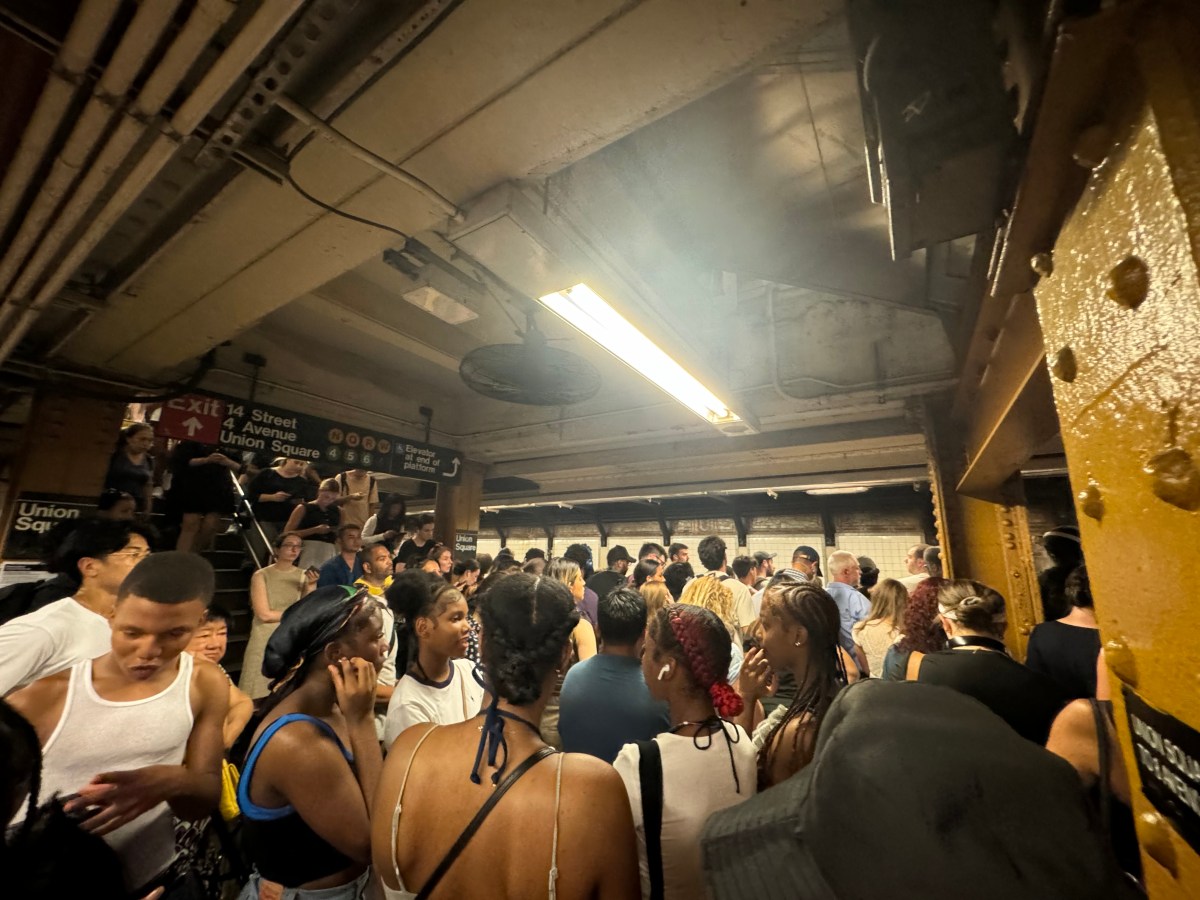The city snubbed Park Slope’s request for traffic-slowing measures in 2011, but it might reconsider now that pressure is mounting from neighbors, an official said after a meeting to brainstorm ways to make streets safer on Tuesday night.
Hundreds of Slopers gathered at the Park Slope United Methodist Church to pool road safety ideas a week and a half after activists symbolically lowered the speed limit along Prospect Park West to 20-miles-per-hour with un-sanctioned signs and two months after a 12-year-old was killed on that street by a van. A Department of Transportation official in attendance did not respond to attendees’ demands to lower speed limits, but he did allow to a reporter that the neighborhood might be a good fit for the so-called “Slow Zone” designation the department denied two years ago.
“It’s something done in other neighborhoods that we’re planning to do — it’s something that would be a potential in Park Slope in the future,” said Christopher Hrones, the department’s Downtown Brooklyn transportation coordinator, about the program that would bring 20-mile-per-hour speed limits, speed humps, and other traffic calming measures.
Three Park Slope civic groups and two community boards submitted the 2011 application to make the whole neighborhood a car chill-out sector, but street planners passed it over because the neighborhood logged relatively few auto-crash deaths and injuries, according to Eric McClure, co-founder of Park Slope Neighbors, one of the groups behind the failed bid. The coalition did not reapply in 2012 because of a huge waiting list, he said, and this October the city announced 15 new Slow Zones to be set up over the next three years, meaning that the earliest Park Slope could be considered again would be 2016.
“We’re a bit disheartened,” McClure said. “I’m not sure how the next process will work, but we will work very closely with our elected officials, the Department of Transportation, and other stakeholders to try to make that happen for this neighborhood.”
The Tuesday meeting drew impassioned testimony about why the city cannot wait to slow down car traffic, including words from the parents of Sammy Cohen Eckstein, the boy killed when he ventured onto Prospect Park West to retrieve a soccer ball and tripped in front of a van, according to his mother.
“Clearly, more needs to be done now,” said Amy Cohen, Cohen Eckstein’s mother, in a tearful speech, calling for lower speed limits and citing data that shows reduced velocities save lives in crashes.
Police do not suspect speeding to have been a factor in the crash that took Cohen Eckstein’s life, the New York Post reported, and the investigation is closed and no criminal charges have been filed, according to Cohen.
Public advocate-elect Letitia James pledged to stay on Sloper and Mayor-elect DeBlasio’s case about the importance of traffic calming in the coming year.
“To Samuel’s parents and Sammy, may his death not go in vain,” James said.
Others called on police to increase the number of cops watching for drivers speeding and failing to yield to pedestrians. Park Slope’s 78th Precinct logged no speeding tickets in September and just 16 in October, according to police statistics.
The precinct’s commanding officer, Deputy Inspector Michael Ameri, took to the podium to pledge to work with the community to make roads safer, but later told attendees that targeting speeders would take more cops specifically dedicated to the task.
“The average police officer driving around the neighborhood cannot just issue a speeding summons,” Ameri said, explaining that such a post would require taking the cop off the beat and giving him or her special training and a radar gun. “You can’t just arbitrarily say, ‘He’s speeding,’ and pull [a driver] over.”
The solutions offered by attendees differed, but the message of the meeting was clear: pedestrians and cyclists in Park Slope are sick of having close calls with cars.
“I’ve had numerous situations with me and my kids where we’ve almost been hit, and all you’re left with is a feeling of rage,” said Slope mom Karen Fuller.



